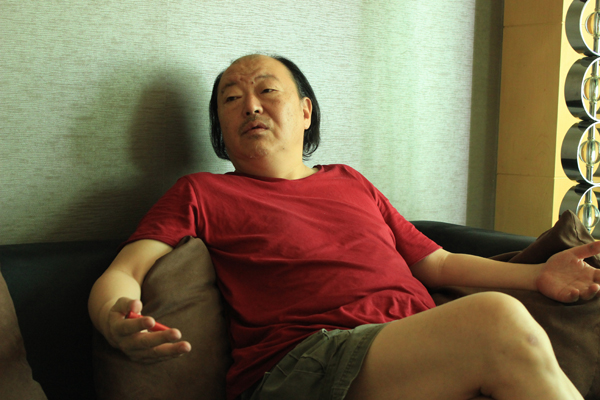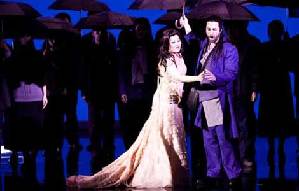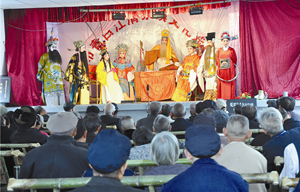Sounds of tradition
Updated: 2013-07-29 09:48
By Wang Kaihao and Yang Fang (China Daily)
|
|||||||||||
 |
|
Photo by Wang Kaihao/China Daily |
Ulaantug is the first composer from non-Han ethnic groups to hold a concert in Beijing's Great Hall of the People. However, Ulaantug says he cares little about these type of achievements, he does not even categorize his manuscripts.
"Perhaps I should because many manuscripts are missing," he laughs. "But I use my musical language to repay my homeland and cheer people up. That is good enough."
In Ulaantug's eyes there are two ways to revitalize ethnic music: One is to collect the folklores scattered in the grassroots, and the other is to use modern genres, like symphony, to explain traditions. He prefers the second method, because of his own academic study of western classical music and his 11 years' experience as an instructor in an orchestra based in Hohhot, capital of the autonomous region.
When his music in Hulunbuir Symphonic Poems was played in 2007 at Golden Hall, the Musikverein in Vienna, Austria, he remained calm as the Western audience cheered. He continues to search for multiple ways to make Mongolian melodies heard globally. As an accomplished piano, violin and cello player, as well as a master of Chinese musical instruments like erhu and horse-head fiddle, he is a qualified candidate to bond different cultures.
Ulaantug is among the co-organizers of Hohhot-based Grassland Cultural Protection and Development Fund of Inner Mongolia, which is devoted to reviving traditional Mongolian ethnic cultural heritage and enhancing their communications with overseas counterparts. He has also devoted much energy in recent years to promote World Music, a relatively new term describing the world's ethnic music.
He is currently composing for a romantic opera Baigalmaa, which is to be staged in Beijing's Poly Theater in September. The program, led by China Opera, will be his opera debut.
"We don't have to strictly follow Western disciplines," he says. "All arias in this new work are based on Mongolian ethnic music, but we will use Western formats to make it accepted by senior opera fans. As long as the music is attractive, a simple storyline will make it popular. "
However, he confesses this is only a trial to combine Mongolian ethnic music and its European counterparts, and believes it will trigger more relevant in-depth comparative academic research if the trial is successful.
"The movie Titanic made Scottish bagpipes popular around the world," he says. "Maybe more operas on Mongolian ethnic group will have the same benefits on our traditional musical instruments."
He says the adaptation should be rooted in a deep understanding of an ethnic group's history, culture, and values, and expects the opera will be well received by overseas audiences.
| Sound effects | Melodic heritage |
Related Stories
A lost soul in a time of turmoil 2013-06-20 10:01
Grammy stars come to shine 2013-06-07 02:36
Caustic composer 2013-05-22 10:31
Music on the wing of a dream 2013-05-17 15:17
Classical music's great champion 2013-04-23 09:19
Shanghai music festival kicks off on April 28 2013-04-19 16:13
Today's Top News
Officers suspended after alleged beating
Mental health care falls short
Deliveries up as mercury rises
Audit targets local government debt
Xi's speech underlines commitment to reform
Brain drain may be world's worst
Russian military to make inspection flights over US
Israel-Palestine talks to resume
Hot Topics
Lunar probe , China growth forecasts, Emission rules get tougher, China seen through 'colored lens', International board,
Editor's Picks

|

|

|

|

|

|







